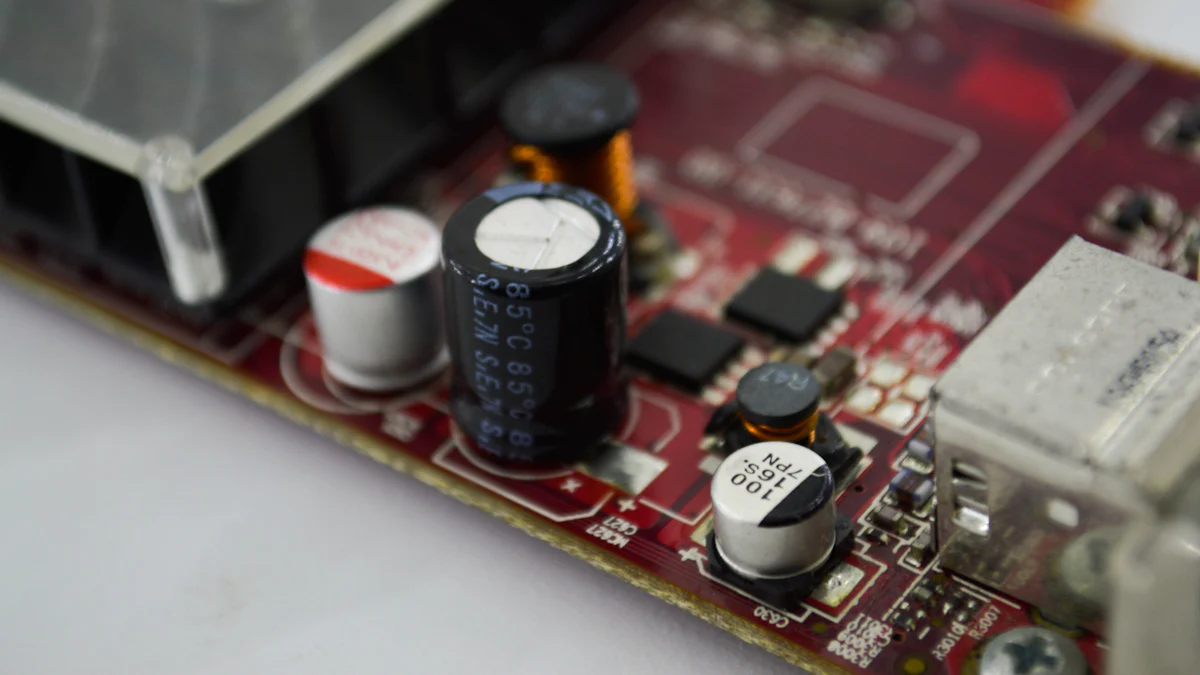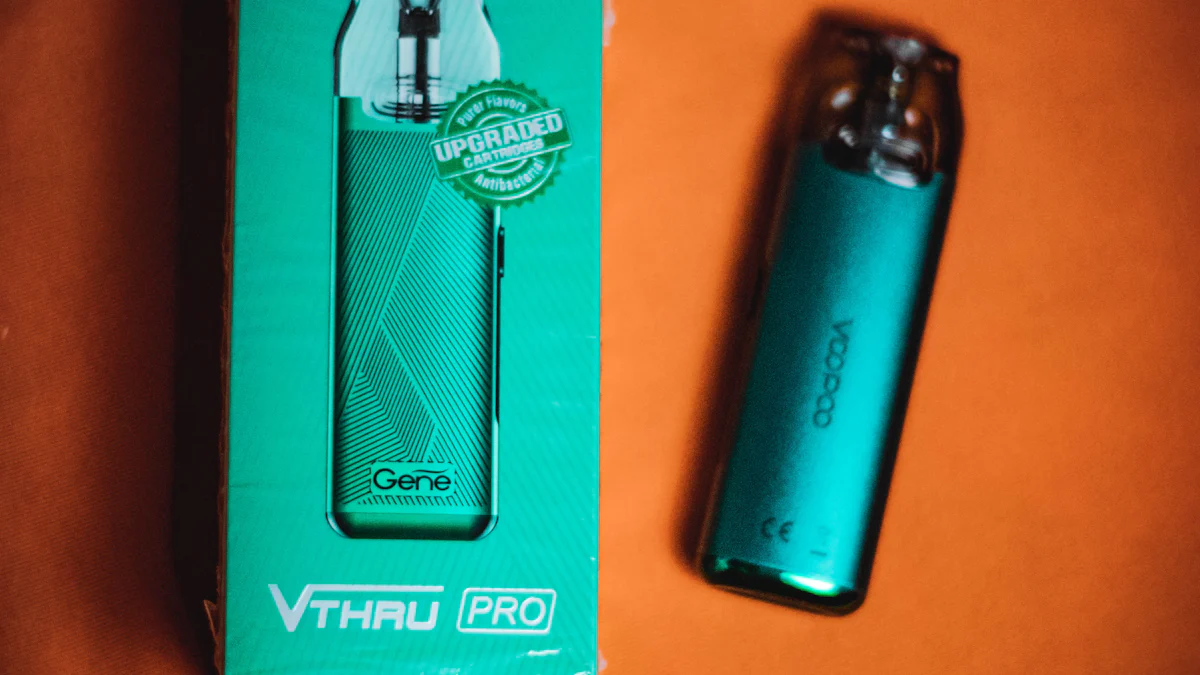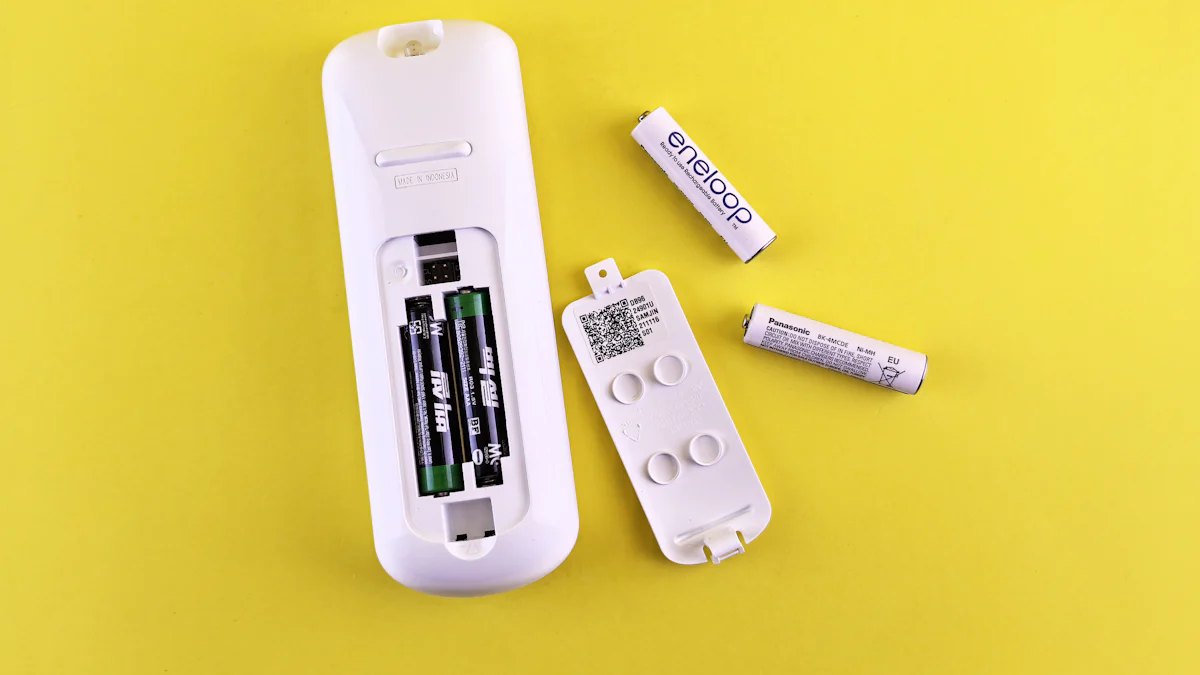
Carbon zinc batteries offer a practical and affordable solution for powering devices with low energy demands. Their production relies on simpler materials and technology, which significantly reduces manufacturing costs. This cost advantage makes them the least expensive option among primary batteries. Many consumers prefer these batteries for their budget-friendly nature, especially when minimizing expenses is a priority. Devices with low power requirements, such as remote controls or clocks, benefit greatly from this economical choice. The accessibility and affordability of carbon zinc batteries ensure they remain a popular option for everyday use.
Key Takeaways
- Carbon zinc batteries are the most affordable option for low-drain devices, making them ideal for budget-conscious consumers.
- Their simple manufacturing process and use of inexpensive materials significantly reduce production costs, allowing for competitive pricing.
- These batteries excel in powering devices like remote controls, wall clocks, and flashlights, providing reliable performance without frequent replacements.
- While carbon zinc batteries are cost-effective, they are best suited for low-drain applications and should not be used in high-drain devices.
- Bulk purchasing options enhance affordability, making it easy for households to stock up on these economical batteries.
- Compared to alkaline and rechargeable batteries, carbon zinc batteries offer immediate savings for users who prioritize low-cost power solutions.
- Their widespread availability in stores and online ensures that consumers can easily find and replace them as needed.
Why Are Carbon Zinc Batteries Affordable?
Key Components and Manufacturing Process
Carbon zinc batteries stand out for their affordability, which stems from their straightforward design and manufacturing process. The materials used in these batteries, such as zinc and manganese dioxide, are widely available and inexpensive. Manufacturers rely on a simple chemical setup that involves a zinc anode and a carbon rod cathode. This simplicity reduces production costs significantly.
The manufacturing process itself is efficient. Factories use automated production lines to assemble these batteries quickly and with minimal labor costs. For instance, companies like Johnson New Eletek Battery Co., Ltd. operate with advanced machinery and skilled staff to ensure high-quality output while keeping expenses low. This streamlined approach allows manufacturers to produce large quantities of carbon zinc batteries at a fraction of the cost of other battery types.
According to studies, the simplicity of the chemical reactions in carbon zinc batteries plays a crucial role in minimizing production costs. This efficiency makes them an economical choice for consumers seeking budget-friendly power solutions.
Economical Design for Low-Drain Applications
Carbon zinc batteries are specifically designed for devices with low energy demands. Their economical design focuses on providing sufficient power for applications like remote controls, wall clocks, and flashlights. These devices do not require high energy output, making carbon zinc batteries an ideal match.
The design prioritizes cost-effectiveness without compromising functionality. By avoiding the use of expensive materials or complex technologies, manufacturers can offer these batteries at competitive prices. Bulk purchasing options further enhance their affordability. For example, a pack of 8 Panasonic Super Heavy Duty Carbon Zinc AA Batteries costs just $5.24, making them accessible to a wide range of consumers.
This focus on low-drain applications ensures that carbon zinc batteries deliver reliable performance where it matters most. Their affordability, combined with their suitability for specific devices, reinforces their position as a practical choice for everyday use.
Comparing Carbon Zinc Batteries to Other Battery Types

Cost Efficiency vs. Alkaline Batteries
When comparing carbon zinc batteries to alkaline batteries, the cost difference becomes immediately apparent. Carbon zinc batteries are significantly more affordable. Their simple design and use of inexpensive materials contribute to their low price point. For instance, a pack of 8 Panasonic Super Heavy Duty Carbon Zinc AA Batteries costs just $5.24, while a similar pack of alkaline batteries often costs nearly double.
Alkaline batteries, however, offer higher energy density and longer lifespans. They perform better in high-drain devices like digital cameras or portable gaming consoles. This makes them a preferred choice for users who prioritize performance over cost. On the other hand, carbon zinc batteries excel in low-drain applications, such as wall clocks or remote controls, where their economical nature shines.
In summary, carbon zinc batteries provide unmatched affordability for low-drain devices, while alkaline batteries justify their higher price with superior performance and durability.
Cost Efficiency vs. Rechargeable Batteries
Rechargeable batteries present a different value proposition. Their initial cost is much higher than that of carbon zinc batteries. For example, a single rechargeable battery can cost as much as an entire pack of carbon zinc batteries. However, rechargeable batteries can be reused hundreds of times, which offsets their upfront expense over time.
Despite this, carbon zinc batteries remain a practical choice for users who need a quick, low-cost solution. Not everyone requires the longevity of rechargeable batteries, especially for devices that consume minimal power. Additionally, rechargeable batteries require a charger, which adds to the initial investment. For budget-conscious consumers, carbon zinc batteries eliminate these extra costs.
While rechargeable batteries offer long-term savings, carbon zinc batteries stand out as the go-to option for immediate, low-cost power needs.
Cost Efficiency vs. Specialty Batteries
Specialty batteries, such as lithium or button cell batteries, cater to specific high-performance needs. These batteries often come with a premium price tag due to their advanced technology and specialized applications. For instance, lithium batteries boast the longest service life and exceptional performance in extreme conditions, making them ideal for high-drain or professional-grade devices.
In contrast, carbon zinc batteries focus on affordability and practicality. They may not match the energy density or durability of specialty batteries, but they fulfill the requirements of everyday devices at a fraction of the cost. For users who prioritize cost efficiency over specialized performance, carbon zinc batteries remain a reliable and economical choice.
Specialty batteries dominate in niche applications, but carbon zinc batteries win in affordability and accessibility for everyday use.
Applications of Carbon Zinc Batteries

Common Devices That Use Carbon Zinc Batteries
I often see carbon zinc batteries powering a variety of everyday devices. These batteries work exceptionally well in low-drain electronics, which makes them a staple in many households. For instance, remote controls rely on their steady power output to function seamlessly over extended periods. Wall clocks, another common application, benefit from their ability to provide consistent energy without frequent replacements.
Flashlights also depend on these batteries, especially for occasional use. Their affordability ensures that users can keep multiple flashlights ready without worrying about high costs. Radios and alarm clocks are other examples where these batteries shine. They deliver reliable performance for devices that do not demand high energy output.
Toys, particularly those with simple mechanical or electronic functions, are another popular use case. Parents often choose carbon zinc batteries for toys because they balance cost and functionality. Smoke detectors, though critical for safety, also fall into the category of low-drain devices that these batteries support effectively.
In summary, carbon zinc batteries power a wide range of devices, including remote controls, wall clocks, flashlights, radios, alarm clocks, toys, and smoke detectors. Their versatility and affordability make them a practical choice for everyday needs.
Why They Are Ideal for Low-Drain Devices
I believe the design of carbon zinc batteries makes them perfect for low-drain devices. These batteries provide steady power over time without significant voltage drops. This characteristic ensures that devices like clocks and remote controls operate reliably. Unlike high-drain devices, which require bursts of energy, low-drain devices benefit from the consistent output these batteries offer.
The cost-effectiveness of these batteries further enhances their appeal. For devices that do not consume much energy, such as wall clocks or smoke detectors, investing in more expensive battery types often feels unnecessary. Carbon zinc batteries fulfill the energy requirements of these devices at a fraction of the cost of alternatives like alkaline or rechargeable batteries.
Their widespread availability also adds to their practicality. I often find them in local stores and online platforms, making them accessible for quick replacements. Bulk purchasing options further reduce costs, which is particularly useful for households with multiple low-drain devices.
The combination of steady power, affordability, and accessibility makes carbon zinc batteries an ideal choice for low-drain applications. They deliver reliable performance while keeping costs manageable for consumers.
I find carbon zinc batteries to be an excellent choice for powering low-drain devices. Their affordability makes them a practical solution for budget-conscious consumers. These batteries deliver reliable performance for everyday applications without straining finances. While they may not match the advanced capabilities of other battery types, their cost efficiency ensures they remain a popular option. For anyone seeking a balance between functionality and price, carbon zinc batteries provide unmatched value. Their widespread availability further enhances their appeal, making them a dependable choice for households and businesses alike.
FAQ
What are carbon zinc batteries, and what are their uses?
Carbon zinc batteries, also known as zinc-carbon batteries, are dry cells that provide direct electric current to devices. I often see them used in low-drain devices like remote controls, clocks, fire sensors, and flashlights. These batteries are reliable for powering small devices over extended periods. However, they may start to leak over time as the zinc casing degrades.
Do carbon zinc batteries last longer than alkaline batteries?
No, carbon zinc batteries do not last as long as alkaline batteries. Alkaline batteries typically have a lifespan of about three years, while carbon zinc batteries last around 18 months. For low-drain devices, though, carbon zinc batteries remain a cost-effective option despite their shorter lifespan.
Are carbon zinc batteries the same as alkaline batteries?
No, carbon zinc batteries differ from alkaline batteries in several ways. Alkaline batteries outperform carbon zinc batteries in energy density, lifespan, and suitability for high-drain devices. However, carbon zinc batteries are more affordable and better suited for low-drain applications like wall clocks and remote controls.
Why should I use carbon zinc batteries?
I recommend carbon zinc batteries for low-drain devices such as radios, alarm clocks, and flashlights. These devices do not require high power output, making carbon zinc batteries an economical and practical choice. Avoid using them in high-drain devices like digital cameras, as the batteries may fail or leak under such demands.
How much do carbon zinc batteries cost?
Carbon zinc batteries are among the most affordable battery options. Prices vary depending on the brand and packaging. For example, a pack of 8 Panasonic Super Heavy Duty Carbon Zinc AA Batteries costs around $5.24. Bulk purchasing can offer additional savings, making these batteries accessible to budget-conscious consumers.
Are carbon zinc batteries the same as lithium batteries?
No, carbon zinc batteries and lithium batteries are not the same. Lithium batteries are designed for high-performance applications and have a much longer lifespan. They are ideal for high-drain or professional-grade devices but come with a higher price tag. Carbon zinc batteries, on the other hand, focus on affordability and are best for everyday low-drain devices.
What devices work best with carbon zinc batteries?
Carbon zinc batteries perform well in devices with low energy demands. I often use them in remote controls, wall clocks, flashlights, radios, and alarm clocks. They are also suitable for toys with simple functions and smoke detectors. These batteries provide steady power for such applications without frequent replacements.
Can I use carbon zinc batteries in high-drain devices?
No, I do not recommend using carbon zinc batteries in high-drain devices. Devices like digital cameras or portable gaming consoles require high power output, which carbon zinc batteries cannot provide effectively. Using them in such devices may lead to battery failure or leakage.
What are the alternatives to carbon zinc batteries?
If you need batteries for high-drain devices, consider alkaline or lithium batteries. Alkaline batteries offer better energy density and longer lifespans, while lithium batteries provide exceptional performance and durability. Rechargeable batteries are another alternative for those seeking long-term cost savings. However, for low-drain devices, carbon zinc batteries remain the most economical choice.
Why do carbon zinc batteries leak?
Carbon zinc batteries may leak because the zinc casing degrades over time. This happens as the battery discharges and the zinc reacts with the electrolyte. To prevent leakage, I suggest removing the batteries from devices when not in use for extended periods and storing them in a cool, dry place.
Post time: Dec-05-2024




